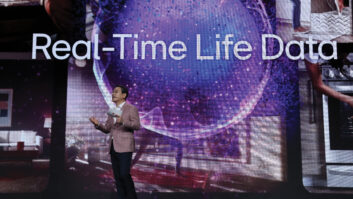New types of artificial intelligence (AI) will be one of the major themes to watch for at the 2017 CES.
AI has been a growing story at the show for the past few years, but at CES 2017 it will be more dramatic and pervasive than ever before. In fact, AI could very well be “The Story of the Show.”
Expect AI themes focused on experiences powered by AI, though not necessarily visible to the consumer. This is about the convergence of AI capabilities, such as machine learning, natural language processing, and analytics, that spawn more fidelity and more personalized responses.
AI uses software algorithms and programs to make computers think, predict, learn and solve problems more like humans, to create more efficiencies and other benefits in peoples’ lives.
Thus far this goal has not been completely achieved because computer intelligence hasn’t attained human levels of intelligence, but substantial progress is being made towards this end. Expect to hear about more new AI applications technologies, products and services than you ever had at CES. These would include AI applications for the automotive, robotics, and health and fitness markets.
Of course AI is also becoming a key part of the infrastructure of the consumer electronics market, so expect to hear about new robotics process automation technologies that can be used to accelerate manufacturing of CE products such as smartphones.
Indeed, according to BofA Merrill Lynch Global research, the U.S. AI and robot market is estimated to be $153 billion by the year 2020 — $83 billion for robots and $70 billion for AI.
On the product side, look for news about AI use in smartphones to ascertain that you have a defect and alert you to this problem.
AI can also use historical data and trends to help predict the future, such as peoples’ buying behaviors. The CE industry, for one, is already leveraging machine learning, a type of artificial intelligence, to increase the number of consumers reached with well-targeted advertisements. For example, you may receive an ad on your fitness monitor of high relevance to you.
Leveraging AI techniques, companies can move customer relationships beyond superficial to deeper, more meaningful interactions that engage customers at unprecedented and hyper-personalized levels, and allowing technology to more fully integrate into our lives.
What’s more, by changing the nature of work and spawning a new relationship between people and machines, Accenture research finds that AI could double annual economic growth rates by 2035 and boost labor productivity by up to 40 percent.
The consumer-facing embodiment of AI is intelligent assistants, which will take center stage at CES 2017. The story here will be about the availability of platforms upon which intelligent assistants can plug into.
These platforms provide real-world utility to user-assistant interactions —everything from telling you the weather to playing music to controlling the temperature in your home. Accelerated by the emergence of Amazon Echo and Google Home, intelligent assistants are transforming our lives by making everyday tasks easier.
To be sure, intelligent virtual assistants such as Siri and Alexa will be bigger than ever at CES, and one of the biggest AI stories in January. Following brisk holiday sales of these products, expect more introductions at CES than ever before, as these platforms become more widely used in CE products.
We also anticipate plenty of news about higher-performing and more reliable intelligent assistants in which CE technologies interact verbally with humans to ask questions and make suggestions. For example, advanced intelligent assistants can help send messages and update a person when he or she is running late for a meeting.
Besides the advent of these platforms, another trend driving demand for intelligent assistants is a growing dependence on messaging for communications. Messaging platforms such as Facebook Messenger and What’s App, which have become popular with more than a billion monthly users, could evolve to become a one-stop shop for messaging, entertainment and payments.
The growth in sales of digital assistants could also help accelerate the Internet of Things (IoT) market, creating new applications and services to make devices more valuable and useful.
All told, the global intelligent virtual assistant market is projected to grow at a 32-percent clip from 2016 through 2024, according to Transparence Market Research. The market was sized at $627 million in 2015 and projected to reach $7.9 billion by 2024.
John Curran is managing director, communications, media and technology, at Accenture, the global tech consultancy.













